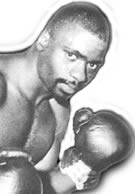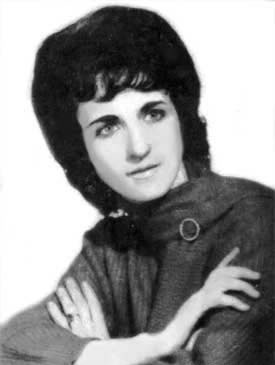
The story of Hurricane Carter is one that was made popular by Bob Dylan's song Hurricane in 1976 and later by the 1999 movie "The Hurricane" starring Denzel Washington. Take a look at the facts in this case and see which side of the moral compass you think the players belong.
Pistols shots ring out in the barroom night
Enter Patty Valentine from the upper hall
She sees the bartender in a pool of blood
Cries out "My God they killed them all"
Here comes the story of the Hurricane
The man the authorities came to blame
For something that he never done
Put him in a prison cell but one time he could-a been
The champion of the world.
These are the lyrics to the start of the song "Hurricane" by Bob Dylan. If you've been reading carefully up to this point, the story of Hurricane Carter is a perfect one for this collection. It's a clear case of a moral injustice made widely known by a popular song. This is a song written by no less than Bob Dylan, perhaps the greatest songwriter of our time. Dylan wrote such classics as "Blowin' In The Wind" and "The Times They Are A Changing", and when I first heard Hurricane it got my attention. The Carter story was also made into a movie in 1999 starring Denzel Washington.
The song and the movie are tour de forces telling the story of how Ruben "Hurricane" Carter was falsely accused and then convicted of a triple murder in Patterson, New Jersey in 1966. This story has all the components of the classic moral injustice - the petty criminals coerced to make a deal with the cops to testify for the prosecution, the racist cops needing to build a case against someone for a horrible triple murder, and framing a black man Ruben Carter with virtually no evidence. Then you have the trial and conviction with the all white jury, and Hurricane Carter spending his life behind bars for a crime he didn't commit.
Rubin Carter was falsely tried
The crime was murder 'one' guess who testified
Bello and Bradley and they both baldly lied
And the newspapers they all went along for the ride
How can the life of such a man
Be in the palm of some fool's hand ?
To see him obviously framed
Couldn't help but make me feel ashamed to live in a land
Where justice is a game.
I would suspect most people heard the song, heard Dylan's voice of authority on the subject, and couldn't imagine why Carter wasn't released immediately given it was so obvious he didn't commit the crime. The song even implies the guilty ones were Bello and Bradley, but since they were white and Carter was black, it was just another symbol of the awful racism in our country. I will say however, it always bothered me that what really happened was Carter was retried for the same crime after the song came out. And he was convicted again! How could that be when according to Dylan he was so obviously framed?
I started to research the events, and quickly found that there are many sides of the story. First of all, Carter was no angel. Before his boxing career began, he had a lengthy criminal record and was dishonorably discharged from the army. He was not a number 1 contender for the middle-weight crown. In fact, his boxing career had been going downhill at the time of the murders as he'd lost 7 fights over the previous year. Some considered Carter a civil rights hero, when in fact he had no credentials at all with the civil rights movement.
Never mind, let's get to the crime itself. Carter and two others were pulled over just minutes away from the crime scene (not in another part of town as described in Dylan's song). Carter was lying down in the back seat when the car was pulled over (why?) Bello actually identified Carter and described the getaway car in his statement to police. The man questioned in the hospital to try to identify Carter, according to Dylan, said "Wha'd you bring him in here for? He ain't the guy!" Actually, the man, Willie Marins, told police he didn't know. According to multiple news stories, Marins admitted later to at least 3 people that he could identify Carter as the killer but wouldn't do so publically because he feared for his life. Yes, there was some coercion by police to get Bello and Bradley to have consistent stories, and they were given breaks lighter sentences for their crimes to testify against Carter. But Carter's alibi was also inconsistent. The first jury was all white, but the second jury in the trial of 1976 had 2 black members, and they convicted him as well.
The story of Ruben Carter is shades of gray at best, and at worst Dylan's song and the movie are entertainment that ignore the facts. This is not to say that stories of corrupt cops, lying witnesses, and racism don't happen. The story of Hurricane Carter is just not one of them. Perhaps this is why Dylan has not performed "Hurricane" in public since 1976.









SUBMIT A COMMENT